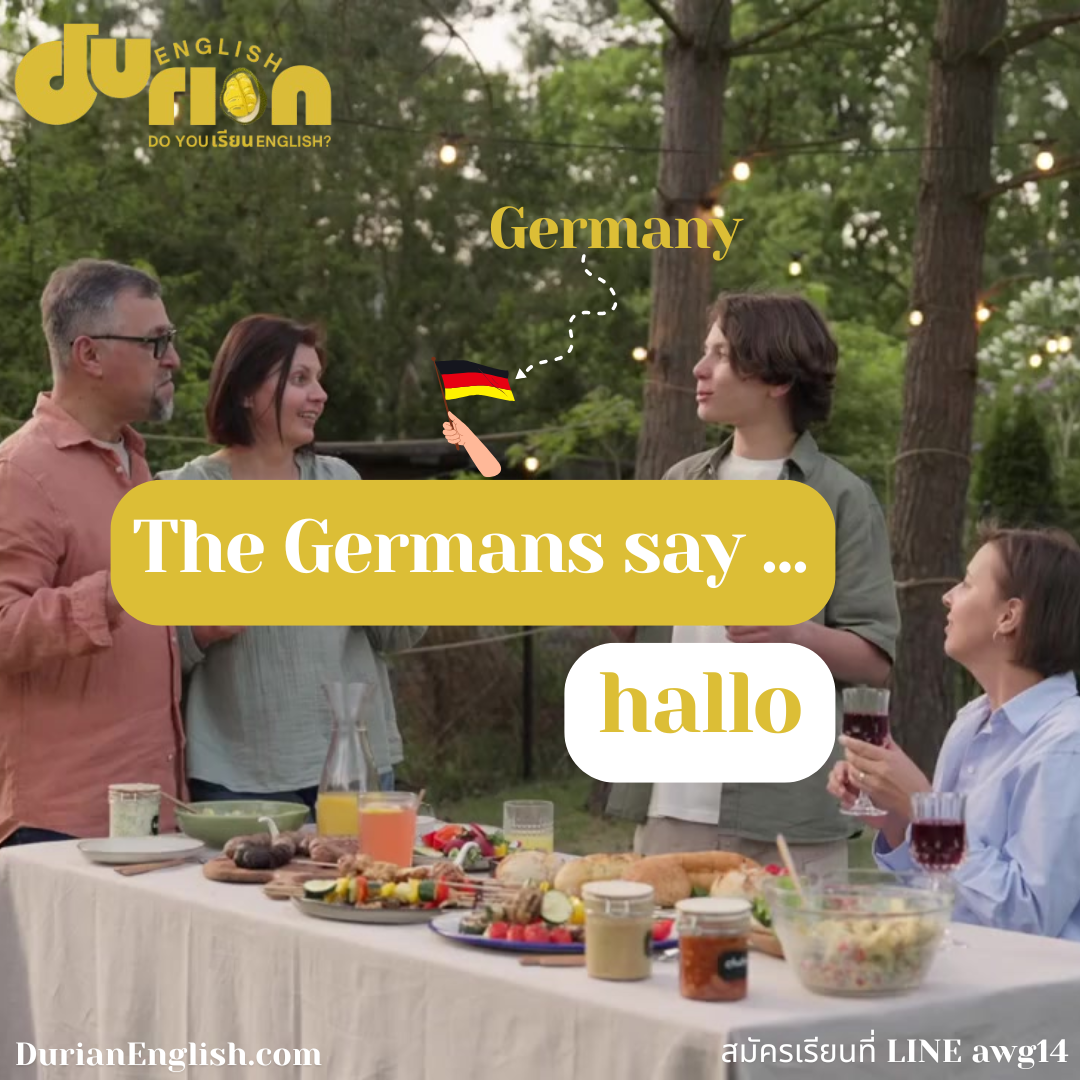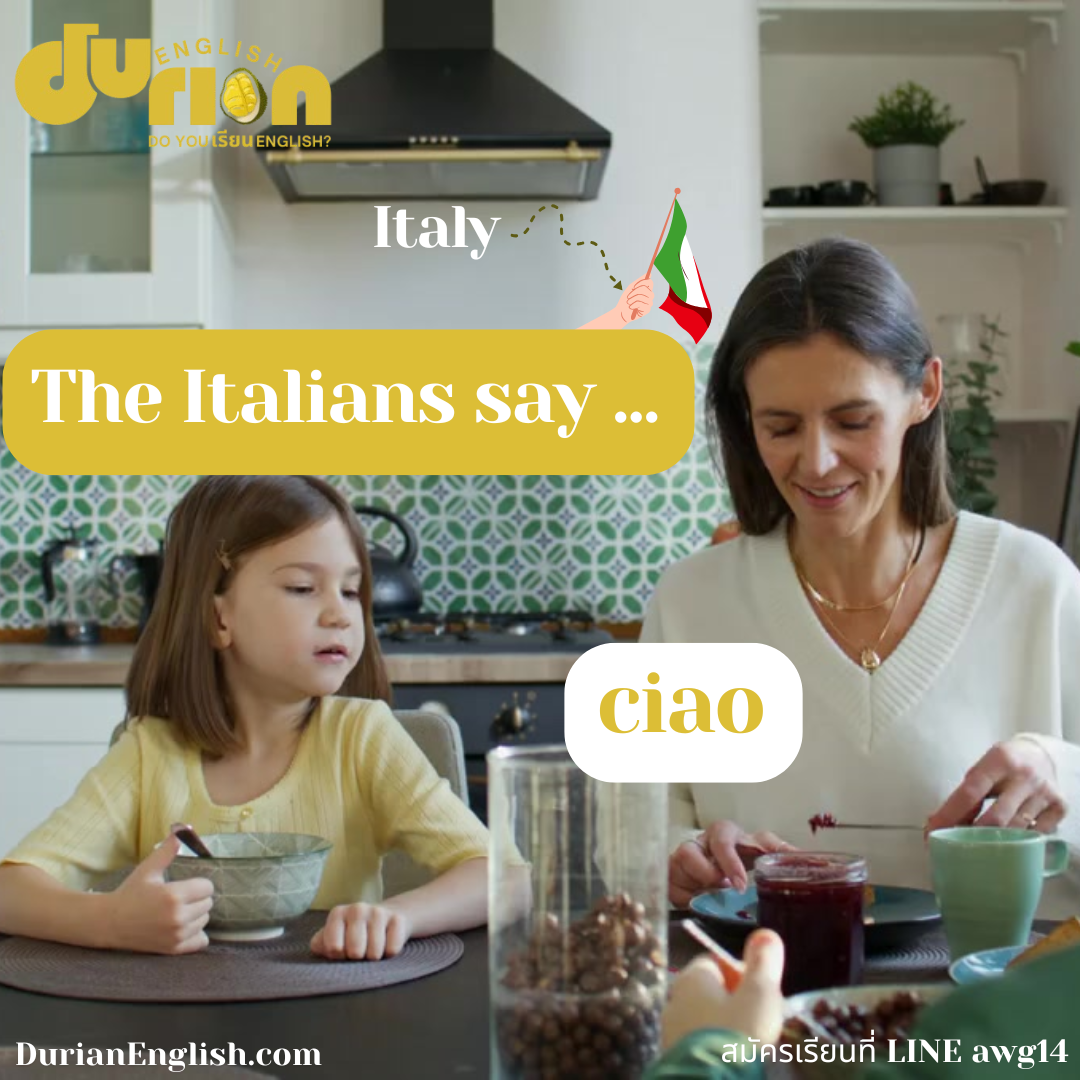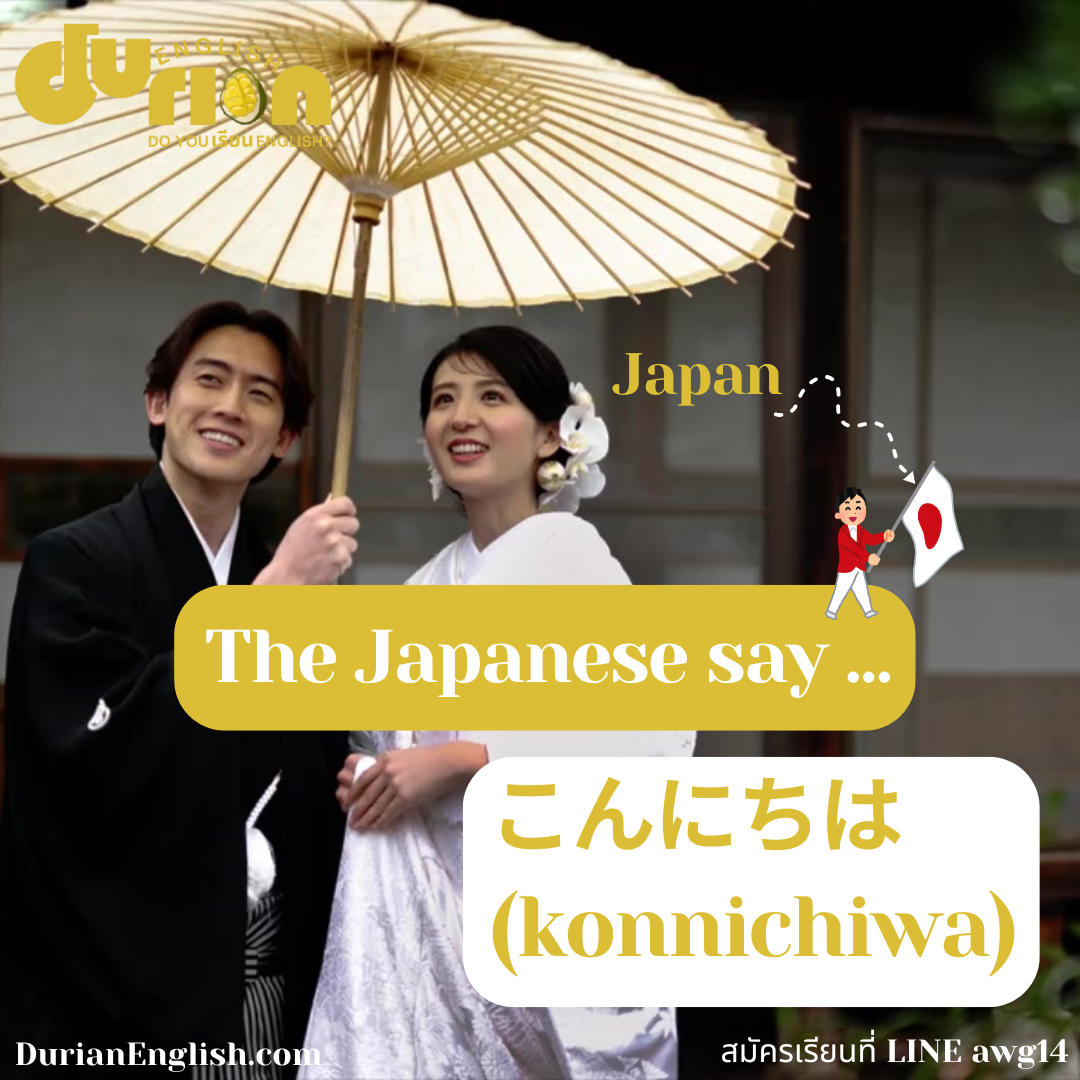How to Say 'สวัสดี' in 10 Different Languages
In Thailand, we greet each other with "สวัสดี" (pronounced sawasdee), a polite and warm way to say "hello." But did you know that greetings differ around the world? Today, let's explore how to say 'สวัสดี' in 10 different languages, from Western languages to Asian ones, and learn a bit about each culture's greeting.
1. English – Hello
Ok, we’ll keep this one short because you all know this. In English, we say "hello" when we meet someone. It’s a universal greeting, often accompanied by a handshake or wave. "Hello" is used in both formal and informal settings. It's similar to "สวัสดี" because it's friendly and polite!
2. Spanish – Hola
In Spanish, the word for "hello" is hola (pronounced oh-lah — Yes, the h is silent!). It’s used in everyday conversations, from casual to more formal contexts. You can say hola whether you're meeting a friend or speaking to someone you just met.
Hola!
3. French – Bonjour
The French use bonjour (pronounced bohn-zhoor) to say "hello." Bonjour is literally "good day" and is used during the daytime. For greetings in the evening or at night, you would say bonsoir (pronounced bohn-swahr), meaning "good evening."
Bonjour!
4. German – Hallo
In German, the greeting hallo (pronounced hah-loh) is very similar to the English "hello." It’s a friendly and informal greeting, commonly used among friends, family, and even colleagues.
Hallo!
5. Italian – Ciao
In Italy, people use ciao (pronounced chow) to say both "hello" and "goodbye." It's an informal greeting, so you would use it with friends and people you know well. It's one of the most famous greetings in the world.
6. Portuguese – Olá
Portuguese speakers greet each other with olá (pronounced oh-lah), which sounds very similar to hola in Spanish. It's an informal greeting, but can be used in many different situations. In more formal settings, you might say bom dia (good day) or boa tarde (good afternoon).
Olá!
7. Japanese – こんにちは (Konnichiwa)
In Japan, the word こんにちは (pronounced konnichiwa) is the common greeting for "hello." However, it's important to note that konnichiwa is usually used during the daytime, and there are other greetings for morning (おはようございます, ohayou gozaimasu) or evening (こんばんは, konbanwa).
こんにちと Konnichiwa!
8. Chinese – 你好 (Nǐ hǎo)
In Mandarin Chinese, people greet each other with 你好 (pronounced nǐ hǎo). This greeting is used in both formal and informal settings. The characters literally mean "you good," which is similar to asking "how are you?" in English.
你好 (Nǐ hǎo)!
9. Russian – Здравствуйте (Zdravstvuyte)
In Russian, the formal greeting здравствуйте (pronounced zdras-tvoo-tye) is used when meeting someone, especially in formal situations or with people you don’t know well. For more casual settings, you can say привет (pronounced pree-vyet), which is more like "hi."
Здравствуйте (Zdravstvuyte)!
10. Egyptian Arabic – مرحبا (Marhaban)
The word مرحبا (pronounced marhaban) means "hello" or "welcome" in Arabic. It's a friendly and informal greeting used across many Arabic-speaking countries. The term can be used both when meeting someone for the first time or when welcoming someone into your home or space.
In some regions, it may also be used more casually, like saying "hi" in English, and it carries a warm and hospitable tone.
In Egypt, people also greet one another with أهلاً وسهلاً (pronounced ah-lan wa sah-lan). This greeting is warm and welcoming and is commonly used to say both "hello" and "welcome." It reflects the hospitality of Egyptian culture.
مرحبا (Marhaban)!
Conclusion:
As you can see, there are many ways to say 'hello' across different languages and cultures. Whether you’re traveling, making new friends, or just curious about languages, greetings are a great way to connect with people and learn more about their customs.
Next time you meet someone from another country, try greeting them in their native language. It’s a fun way to show respect for their culture and maybe even make a new friend!
Happy learning and don’t forget to say ciao to your friends today!










